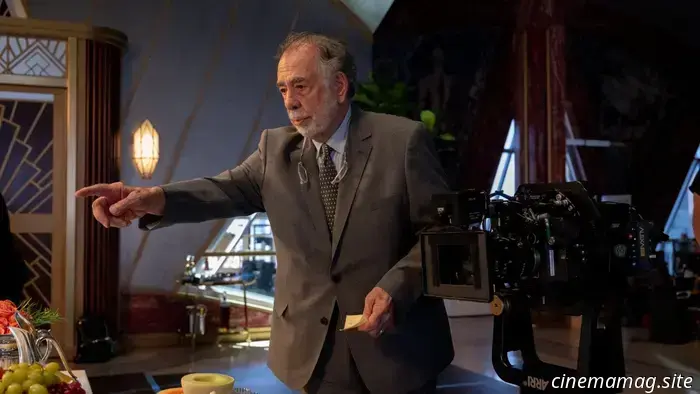
Beautiful, Melancholic, Philosophical: Mike Figgis discussing Francis Ford Coppola, Megalopolis, and MEGADOC.
Reflecting on Francis Ford Coppola’s Megalopolis a year later, amidst the memes, exaggerated critiques, and a few positive reviews, public opinion likely has settled on it being a failure both financially and artistically. Similar to the backlash Coppola faced with his earlier ambitious project, One from the Heart, this film is still likely deserving of rediscovery and reevaluation, especially considering there has been no home video or streaming release (except for MUBI’s limited run in selected regions), giving it the feel of a lost film.
Megalopolis is perhaps best appreciated as an unusual camp piece filled with moments of striking beauty. While it may not have turned out to be the grand masterpiece that a long-anticipated passion project from a master director would ideally be, it’s undeniable that there was really nothing else like it at the cinema last year, or likely in future releases.
Thanks to Mike Figgis, the British filmmaker best known for his Academy Award-nominated work on Leaving Las Vegas, we now have insight into the chaotic vision behind Megalopolis. Figgis, who leveraged his significant Hollywood influence to explore experimentation, stands as an underrecognized pioneer of digital filmmaking (he even authored a book on the subject) and shares a kindred spirit with Coppola. This connection led Figgis to direct MEGADOC, a documentary that chronicles the much-publicized 2022 shoot in Atlanta, capturing the tumult between a director constantly shifting his vision and an ensemble cast of stars willing to take a risk on a project they knew could fail.
We had the pleasure of speaking with Figgis about the making of the film and about his career in a Zoom interview.
The Film Stage: It’s a great honor to speak with you, as I’m a big fan. You might be surprised to learn that during the pandemic, I hosted a Zoom movie club where we watched your films.
Mike Figgis: [Laughs] Punishment.
Oh no! I think the film we enjoyed the most, or were least expecting to enjoy, was Hotel. We approached it with no prior knowledge, and I noted that it premiered the day after 9/11 at TIFF, which must have been unfortunate.
I remember heading to the screening. I was in my hotel in Toronto checking the news when I saw the Twin Towers on fire. Then, right before my eyes, the second plane hit. I thought, “Oh my God,” and rushed downstairs to the lobby, which was filled with Americans and film industry folks. I started telling people, “I don’t know if you’ve heard, but the Twin Towers have just been attacked,” and there was this exodus from the lobby. I then stayed in my hotel room for the subsequent 36 hours, with people coming and going, following the news on two screens. It was surreal, and that was supposed to be the film’s opening.
After two or three days, we finally had a screening. Naturally, the opening scene featured John Malkovich being eaten in the hotel basement, which didn’t sit well at all in that context. It was not the right film for that moment. But I'm thrilled you liked it; it's one of my favorites. I just visited Venice and checked out the hotel; it’s now a five-star establishment.
I know they also just screened The Loss of Sexual Innocence in New York recently, which seems to indicate a resurgence of interest in your work.
Yes, perhaps it takes time, as Francis often says.
Could you share about your relationship with Francis, how you first met, and your friendship and artistic relationship over the years?
I first met him physically during the Oscars for Leaving Las Vegas, where the Coppolas supported Nic [Cage]. I sat next to him at dinner, and we had a great conversation. Though my friendship with him has been somewhat tenuous, seeing him only once every couple of years, we stayed in touch. I guest-edited his magazine, Zoetrope, and through its editor, Michael [Ray], I learned that, three years ago, he was set to move forward with Megalopolis. I had no previous knowledge of the film's history, so I wrote him a congratulatory email and added, “P.S., if you need a fly on the wall, let me know.” After some time, he emailed me back, asking if I had a visa and could come to shoot something. I quickly organized a visa, and with producer Tara [Li-An Smith], we took a plane with basic equipment and jumped in.
When we arrived, Francis didn’t formally introduce me or make a big announcement about the documentary; I just blended in with the crew. The initial footage features actors rehearsing, and I started off as a somewhat annoying guy with a camera. Gradually, I got to know the actors better. The great aspect about Francis is that I had access to nearly everywhere, and since I chose small equipment, I wasn’t intrusive

Other articles
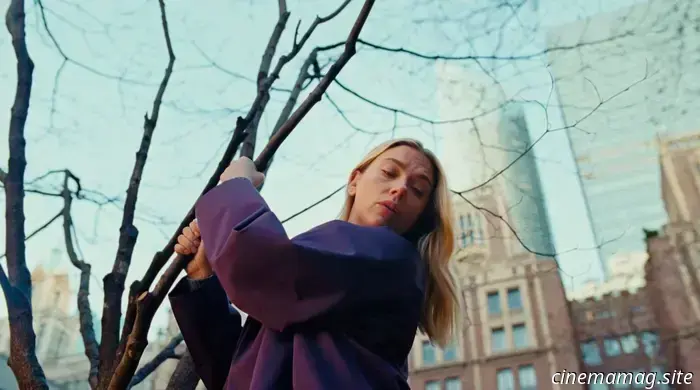 Watch: Scarlett Johansson Discovers Rituals in Prada Advert Directed by Yorgos Lanthimos
For those who struggle to appreciate Yorgos Lanthimos's feature-length films lately, he might have discovered his perfect form of expression in (undoubtedly lucrative) commercials. His latest endeavor involves collaborating with Prada on a new advertisement featuring Scarlett Johansson, who has recently made her directorial debut with a feature film while also managing to find time for this project.
Watch: Scarlett Johansson Discovers Rituals in Prada Advert Directed by Yorgos Lanthimos
For those who struggle to appreciate Yorgos Lanthimos's feature-length films lately, he might have discovered his perfect form of expression in (undoubtedly lucrative) commercials. His latest endeavor involves collaborating with Prada on a new advertisement featuring Scarlett Johansson, who has recently made her directorial debut with a feature film while also managing to find time for this project.
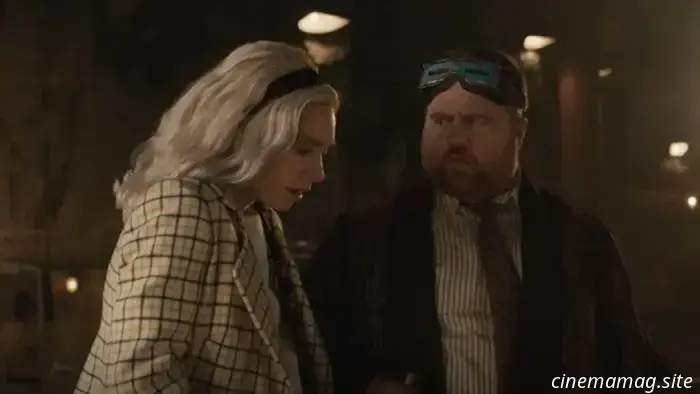 In a deleted scene from The Fantastic Four: First Steps, Sue Storm pays a visit to Mole Man.
In conjunction with the announcement of the digital release of the Marvel Studios blockbuster The Fantastic Four: First Steps on September 23rd, a deleted scene from the film has surfaced online. The scene features Sue Storm (Vanessa Kirby) visiting Mole Man (Paul Walter Hauser) in Subterranea. Take a look at both the clip and […]
In a deleted scene from The Fantastic Four: First Steps, Sue Storm pays a visit to Mole Man.
In conjunction with the announcement of the digital release of the Marvel Studios blockbuster The Fantastic Four: First Steps on September 23rd, a deleted scene from the film has surfaced online. The scene features Sue Storm (Vanessa Kirby) visiting Mole Man (Paul Walter Hauser) in Subterranea. Take a look at both the clip and […]
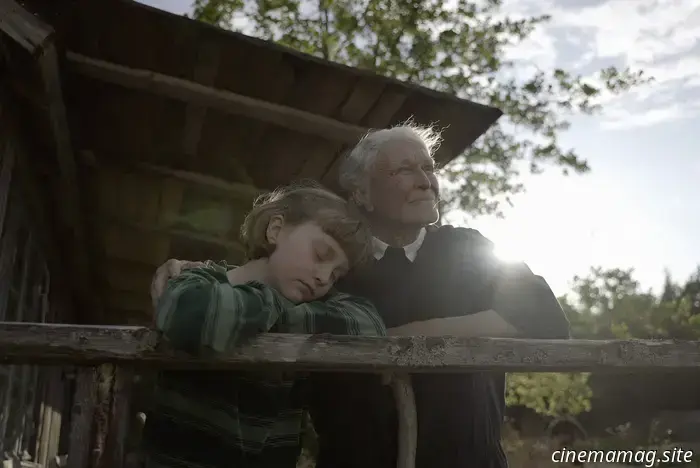 The Summer Book Review: An Awkward Drama Linking Nature and Spirit
Note: This review was initially released as part of our coverage for the 2024 BFI London Film Festival. The Summer Book will hit theaters on September 19. In Charlie McDowell’s previous film, Windfall, the goal—albeit a mostly unsuccessful one—was to place the audience in a tense scenario (similar to Hitchcock's style) and then swiftly release that tension with a
The Summer Book Review: An Awkward Drama Linking Nature and Spirit
Note: This review was initially released as part of our coverage for the 2024 BFI London Film Festival. The Summer Book will hit theaters on September 19. In Charlie McDowell’s previous film, Windfall, the goal—albeit a mostly unsuccessful one—was to place the audience in a tense scenario (similar to Hitchcock's style) and then swiftly release that tension with a
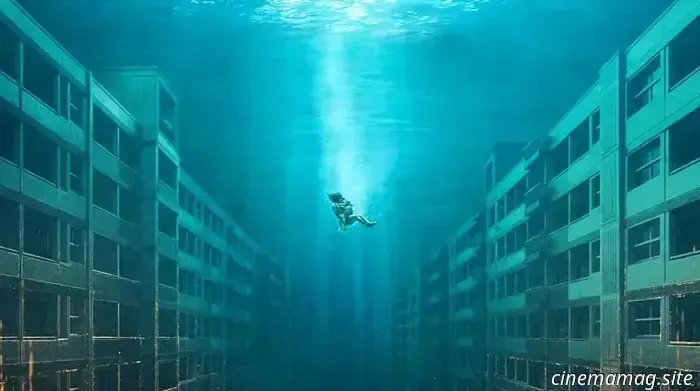 The trailer for the South Korean disaster thriller The Great Flood has been released.
Netflix has unveiled a trailer for The Great Flood, a South Korean sci-fi disaster thriller directed by Kim Byung-woo. The story follows An-na (played by Kim Da-mi), an AI researcher, and her young son Ja-in (portrayed by Kwon Eun-seong), as a devastating flood engulfs the world, confining them in their inundated apartment until she receives a message from a […]
The trailer for the South Korean disaster thriller The Great Flood has been released.
Netflix has unveiled a trailer for The Great Flood, a South Korean sci-fi disaster thriller directed by Kim Byung-woo. The story follows An-na (played by Kim Da-mi), an AI researcher, and her young son Ja-in (portrayed by Kwon Eun-seong), as a devastating flood engulfs the world, confining them in their inundated apartment until she receives a message from a […]
 In the trailer for Stolen Girl, Kate Beckinsale searches for her daughter.
In anticipation of its debut next week, Voltage Pictures has unveiled a poster and trailer for James Kent's forthcoming thriller, Stolen Girl. Kate Beckinsale portrays Mara, a mother who collaborates with child abduction expert Robeson (Scott Eastwood) to locate her daughter, who has been taken by her ex-husband and has fled to the Middle East.
In the trailer for Stolen Girl, Kate Beckinsale searches for her daughter.
In anticipation of its debut next week, Voltage Pictures has unveiled a poster and trailer for James Kent's forthcoming thriller, Stolen Girl. Kate Beckinsale portrays Mara, a mother who collaborates with child abduction expert Robeson (Scott Eastwood) to locate her daughter, who has been taken by her ex-husband and has fled to the Middle East.
-Movie-Review.jpg) In Vitro (2025) - Film Review
In Vitro, 2025. Directed by Will Howarth and Tom McKeith, featuring Will Howarth, Talia Zucker, and Ashley Zukerman. SYNOPSIS: Set in the near future on a remote farm, cattle breeders Layla and Jack encounter a troubling entity on their land. In Vitro presents a chilling narrative within Australian cinema, addressing innovative farming methods and […]
In Vitro (2025) - Film Review
In Vitro, 2025. Directed by Will Howarth and Tom McKeith, featuring Will Howarth, Talia Zucker, and Ashley Zukerman. SYNOPSIS: Set in the near future on a remote farm, cattle breeders Layla and Jack encounter a troubling entity on their land. In Vitro presents a chilling narrative within Australian cinema, addressing innovative farming methods and […]
Beautiful, Melancholic, Philosophical: Mike Figgis discussing Francis Ford Coppola, Megalopolis, and MEGADOC.
Looking back on Francis Ford Coppola’s Megalopolis a year later, amidst the memes, exaggerated criticisms, and even a few positive reviews, it seems that public perception has firmly settled on viewing it as a failure, both in terms of finances and artistry. Similar to the backlash Coppola faced with another ambitious project, One from the Heart, many years ago, the film remains
